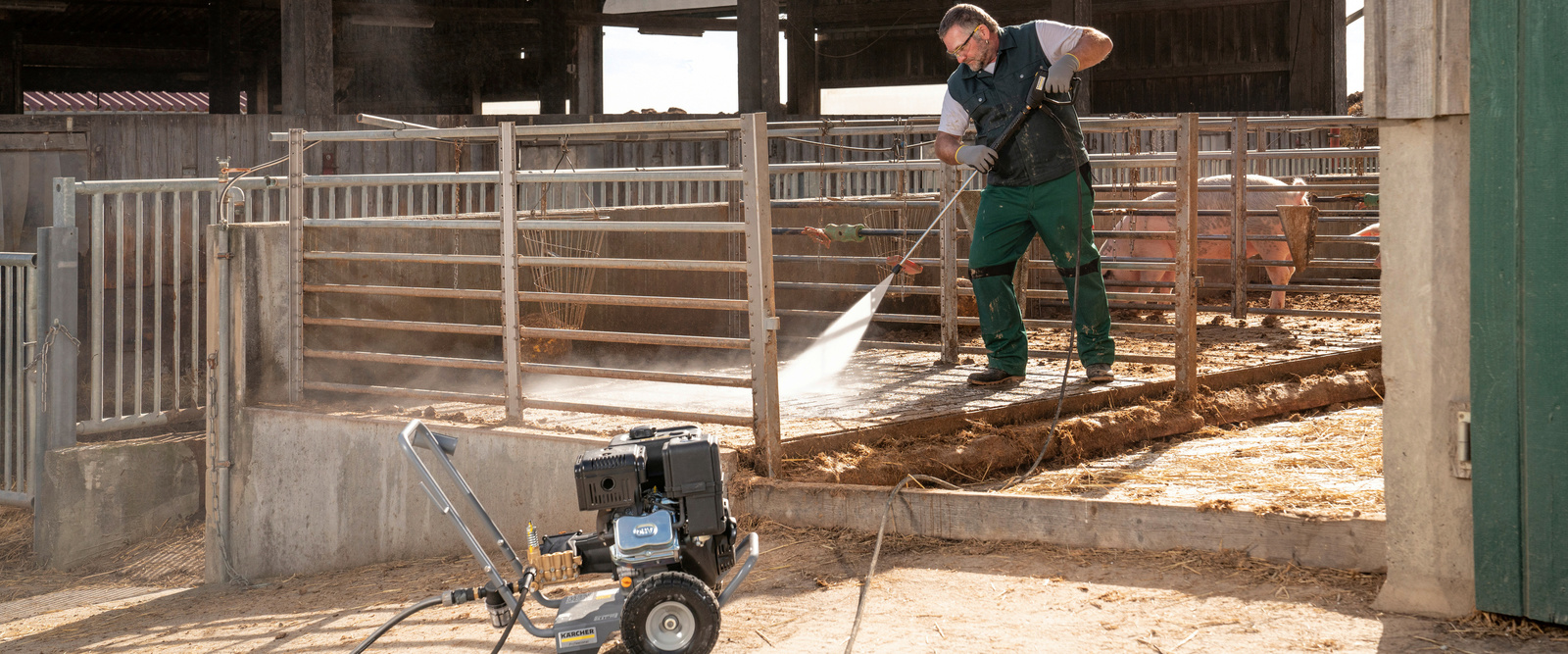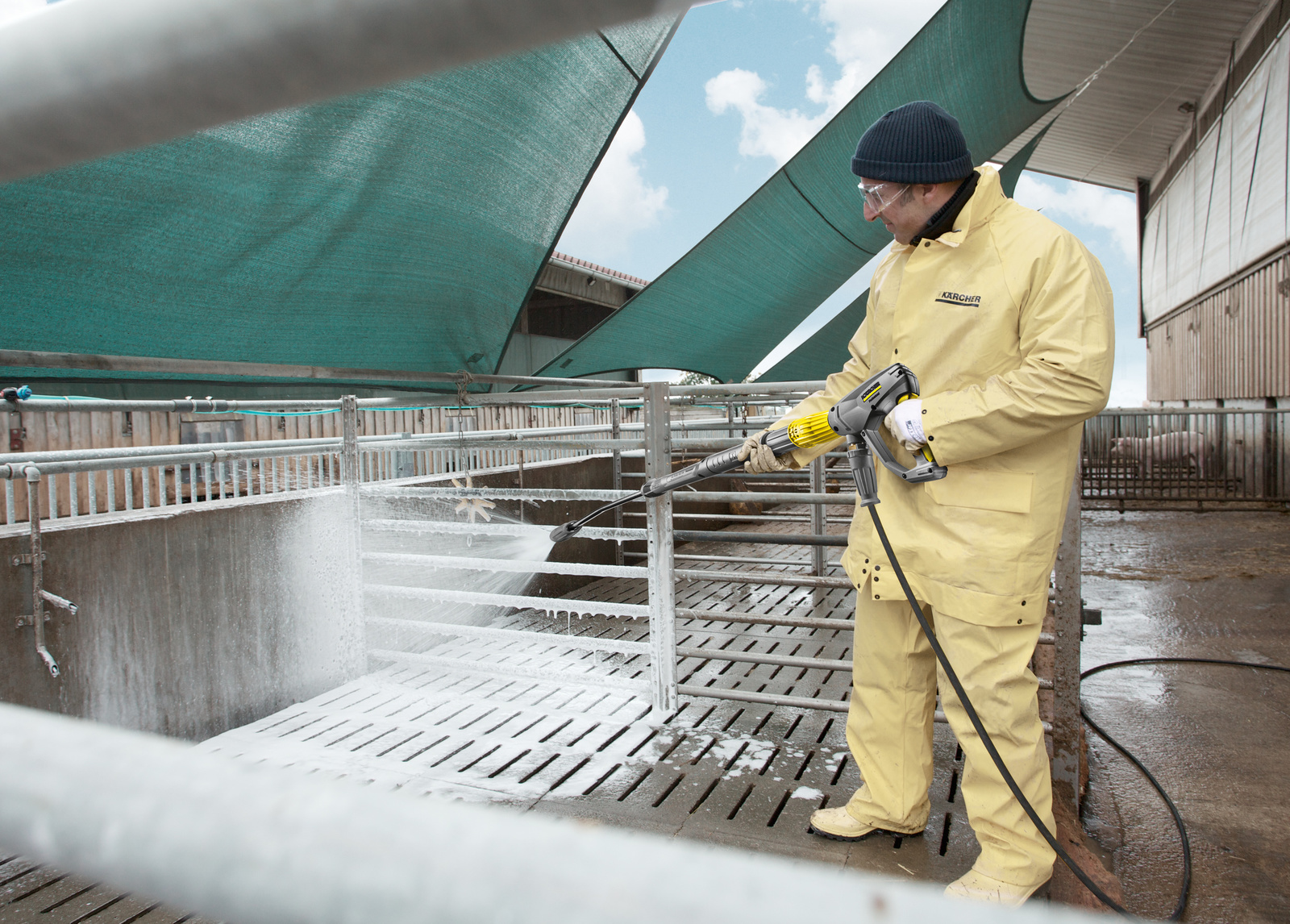Prevent dangerous animal diseases through hygienic cleaning
Uncompromising hygiene on farms as an essential part of a high level of biosecurity is an essential prerequisite for effectively protecting your own livestock from notifiable animal diseases such as African swine fever or bird flu. Professional cleaning equipment and routines allow animal owners to maintain high standards of cleanliness, thereby reducing the likelihood of disease outbreaks.

Serious animal diseases
Animal diseases, which are usually transmitted directly via wild animals or indirectly via means of transport or feed, can have devastating economic and health consequences for animals and humans. An outbreak of a disease can threaten the survival of livestock, and in some cases the disease can also be transmitted to humans. By cleaning the farm properly, farmers can make an important contribution to protecting their stocks and preventing the spread of diseases.
Severe viral infections in animals, such as African swine fever, which only affects wild and domestic pigs, are fatal to the animals. Avian influenza – also known as bird flu, avian influenza and highly pathogenic influenza virus infection – is very contagious and usually fatal. Once it has broken out, this means the animals have to be slaughtered and the owner suffers economic losses. Due to the high mutation rate and the lack of vaccines that can be used in practice, the risk of the virus spreading to humans is always present. Foot and mouth disease (FMD) is one of the animal diseases with the most serious economic consequences worldwide. The highly contagious infectious disease primarily affects cattle, pigs, sheep and goats. The consequential damage of foot-and-mouth disease is particularly feared, so effective prevention is essential for the preservation of animal populations. All of the diseases mentioned are notifiable animal diseases.

The key to animal disease prevention: biosecurity
Once an animal disease has broken out, the consequences are serious. Therefore, pet owners must rely on prevention in the fight against the diseases. The key to this is biosecurity – a cross-sectional task that extends from the planning of the operating facilities and rules of conduct for employees to meticulous cleaning with suitable equipment.
For successful prevention, the first thing to do is to check the company organization. Who has access to the site and the stables, where are vehicles allowed to drive, stop and load or unload, where and how are feed and operating materials stored? And how is compliance with the rules achieved: written plans, instructions and supervision by supervisors, fences, doors and gates, cameras, security personnel? There are starting points everywhere to ensure compliance with access and hygiene regulations.
The hygiene work in the company must also be checked. Because a high level of biosecurity requires professional cleaning and disinfection of the stables and all equipment and machines with which the animals come into contact. If necessary, cleaning is to be carried out in the barn units and associated rooms, for example by strictly separating them into a dirty black area and a clean white area.
In the last step, documentation of all measures can create a high degree of transparency and traceability. It also provides an overview to keep the effort manageable even with high biosafety standards and still ensure the best possible protection of the animals on the farm.






